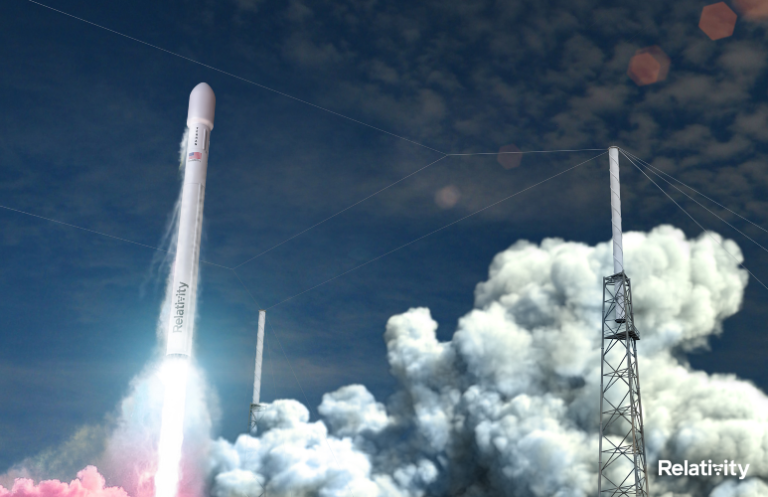
The Long Beach-based aerospace company has completed Stage 1 testing on Terran 1, its fully 3D-printed rocket, the company announced on Oct. 7. This process included waterproof testing, cryogenic-proof testing and flight pressure testing.
Relativity aims to launch its first rocket demonstration of the Terran 1 in early 2022. The launch was originally scheduled for the end of 2021.
“Every day, we’re making progress by fusing 3D printing, AI and autonomous robotics to do what has never been done before,” the company said in its newsletter announcing the completed tests.
Relativity aims for Terran 1 to be the first entirely 3D-printed rocket to reach low-Earth orbit. The rocket is planned to take off from Launch Complex 16 in Cape Canaveral, Fla.
The Terran 1 is designed to carry a payload of up to 1,250 kilograms, or 2,755 pounds, into low-Earth orbit and a maximum of 900 kilograms, or roughly 1,985 pounds, into sun-synchronous orbit, which is roughly 500 kilometers, or 311 miles, over Earth.
Relativity has spent the last year ramping up for take off. The company attracted nearly $1.2 billion in funding in the past 12 months between two funding rounds — a $500 million Series D round led by Tiger Global
In June, the company also announced plans for the Terran R, a rocket that is 20 times the size of the Terran 1 and designed to carry more than 20,000 kilograms to low-Earth orbit.
“Over the last year, we found ourselves being asked by the market to accelerate development of our larger launch vehicle, so we knew it was time to double down on our existing plans and scale the Terran R program even faster and build production capabilities at scale sooner,” Ellis said in a statement about the Terran R.
